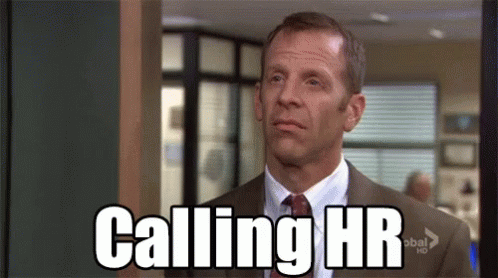What is the biggest challenge in our industry?
Some time ago, I had an interview where the panel asked this question. They did it with a great introduction that I can’t remember word for word, but to give you some context, it was something along the lines:
We are engineers and we think about the overall industry. So, what is, in your perspective, the biggest challenge our industry faces?
I find it a great question. It gives the panel some of my main concerns when thinking holistically about our industry.
My answer was: the anxiety that people in our industry have been facing recently. The layoffs and the AI are putting pressure on people. The lack of job safety and the concern that AI may replace programmers are creating more anxiety in people and it can lead to mental health issues, like burnout.
But I’d like to explore more about why I think this way and what I believe can be done to help others.
Walk with me on this journey.
The AI
Let’s start with AI.
Do I think AI will replace programmers any time soon? No! It may be a matter of lack of skills, but I don’t have a lot of success using Copilot or Codeium.
Copilot
I used Copilot, and I noticed it was distracting me instead of helping me focus on the problem. I had to read the suggestions it gave me and, more often than not, change them. It didn’t help me stay in the flow.
ChatGPT and Gemini
I actually like these tools. I like Gemini better because it seems less verbose - and here I am complaining about the verbosity of an LLM model. They look like programming languages already 😅.
I use these tools to brainstorm and ask initial questions about a problem, but I find myself going to the search engine a lot.
So, these tools are cool and they are just that, tools you should consider.
Why are people worried about AI then?
Our industry seems to be in a collective paranoia. Everyone is so deep in AI, it almost looks like crypto. People didn't seem to be using their brain when it came to crypto, and it seems they are having trouble using their brain now with AI.
When the marketing is this strong and demos are this great, people with decision power, who are distant from the day to day, start suggesting stuff… And trying to explain to them that the technology is still not that great is really hard. It may be an example of Brandolini's law.
The amount of energy needed to refute bullshit is an order of magnitude bigger than that needed to produce it.
Having the NVIDIA CEO, Jensen Huang, state that people shouldn’t learn how to code isn’t helpful either.
It's understandable for people to be concerned about their livelihood being at risk of becoming redundant.
The layoffs
It’s all over the news. Company X reducing 20%, company Y reducing 10%, etc.
There's still some economic uncertainty and CEOs and CFOs are doing everything to ensure a sustainable business. Along with the end of ZIRP (Zero interest-rate policy), we had crazy years between 2020 and 2022 where the salary of software engineers skyrocketed.
Although I don’t have the numbers, I believe a great number of people in our industry haven’t experienced any of these headwinds before.
Those, who have survived a layoff, may experience Survivor Guilt. Or they may still be worried about the next layoff.
Those, the lucky ones, whose companies didn’t do any layoffs, may be afraid, because they know someone who has been laid off.
And those, who have been laid off, may experience some challenges returning to the market. This might be the first time they experience difficulties finding a new job and they are rejected in a lot of interviews. If this resonates with your situation, have faith, things will improve and you are going to be fine! In fact, latest reports show an improving trend.
Uncertainty creates anxiety, because it makes it harder to avoid or mitigate future potential threats. It’s in our nature to understand potential threats. Uncertainty triggers a sense of threat.
What can you do as a leader?
If you are a technical leader, a manager or anyone who people trust, understand you can do a big difference in mitigating anxiety within your team or colleagues.
Foster open communication
If you are a manager, ensure you don’t neglect your teams during these times. There is for sure a lot work to do and a lot of challenges around your company, but ensure you keep your regular check-ins with your team and ensure you are there in the moment.
Be present and listen to the other person and their concerns.
Lead by example
It goes without saying, but you must be positive. Don’t go deep in the conversation that we are all going to be unemployed by the end of 2024 and AI will replace developers, writers, movie makers, etc.
Be positive. Acknowledge that new technology always brings concerns to the society and historically we were always able to improve our society using new technology.
Try to redirect the energy to the challenges within the company and how they can help achieve the desired outcomes.
Understand how to leverage these new technologies
If you are a manager, or a technical leader, understand how your company can leverage these technologies. Hold group sessions and understand how they like to use these tools and where they thrive.
And, please, try to quantify and qualify these tools in your context. Don’t use benchmarks from Microsoft or other companies, remember... they want to sell you that 🤫.
Invest in you and your team
Continuous learning has never been this important. Understand what you want for your future and ensure you plan your time to learn the skills and invest in the future you want.
The same goes for your team if you are a manager. As a manager, ensure you have development plans for all the individuals. Ideally, the development plans are aligned with what is relevant for both your company and their future.
I remember a report of mine that wanted to be a professor. The company had two needs, one to create content to train our colleagues on new tools and the other to train our QA team on Agile Testing. So, we created a development plan to give the person some educational skills, while preparing these internal needs.
Talk to HR

I don’t mean complain to HR! 😅
I understand you want to help your colleagues or your team. However, if you consider the situation to be concerning, it might be better to speak with HR. You probably don’t have the training to deal with these situations. People in human resources have the training and/or the procedures.
How about you, are you OK?
More importantly, if you are feeling overwhelmed, seek someone you trust to talk or find professional help.
Final thought
Whatever the future brings and however these tools improve, we are, intrinsically, good people and we will make the right decisions to transform our society into a better one.

Member discussion